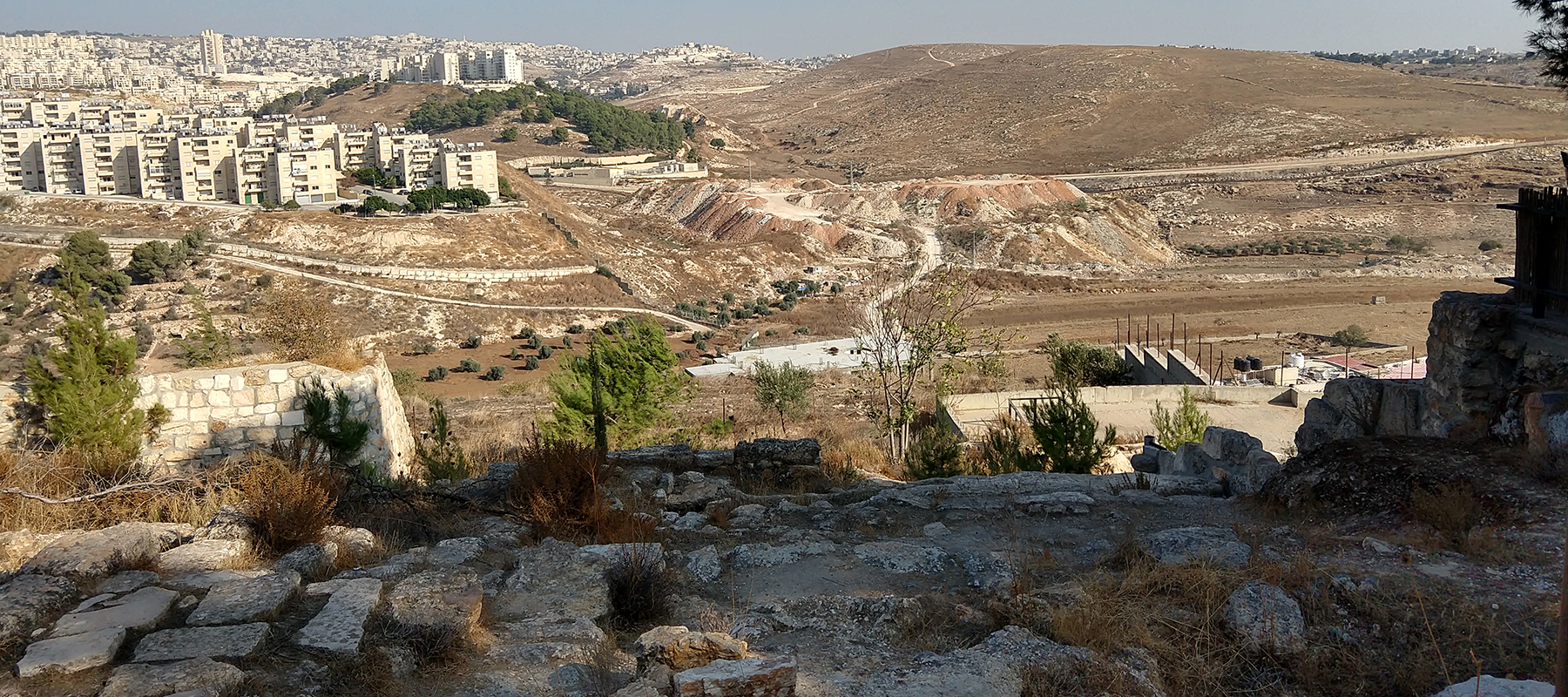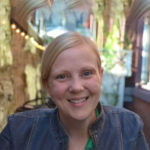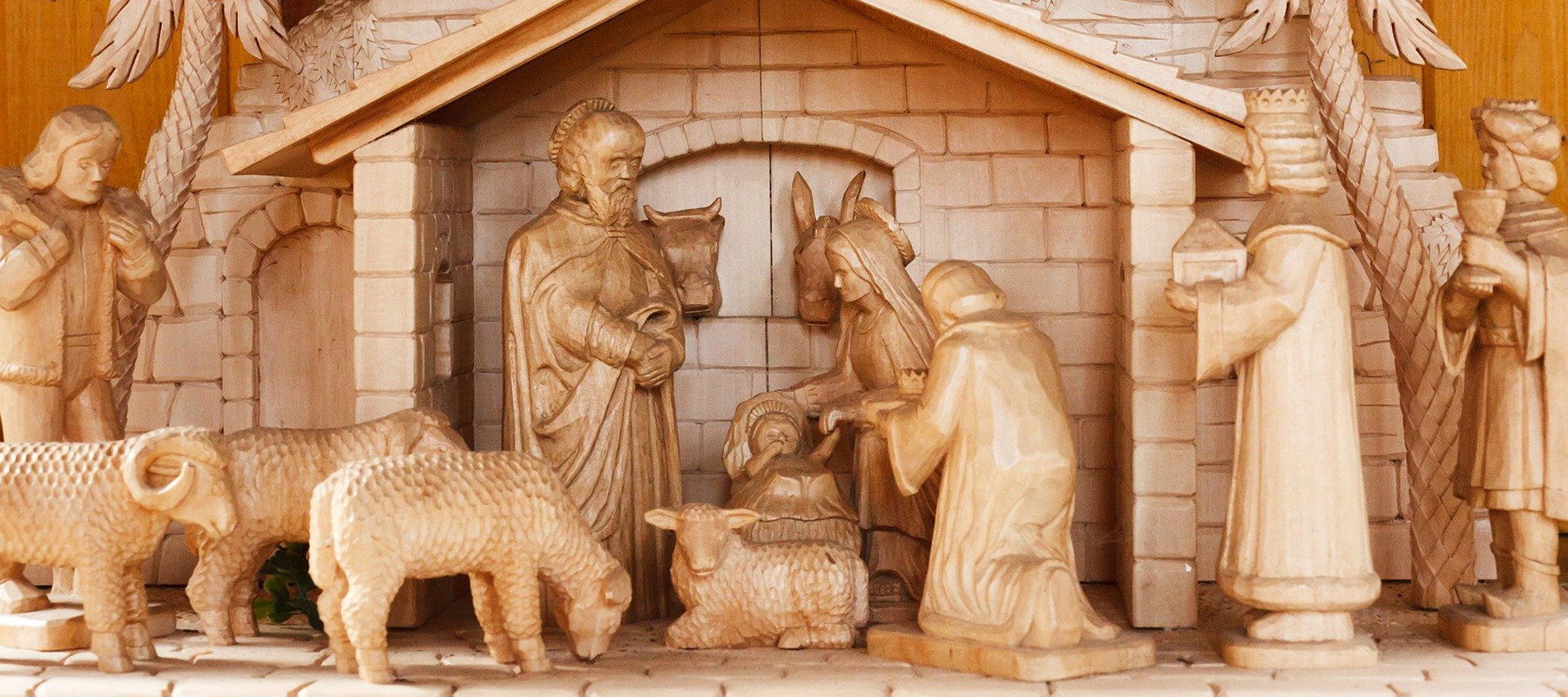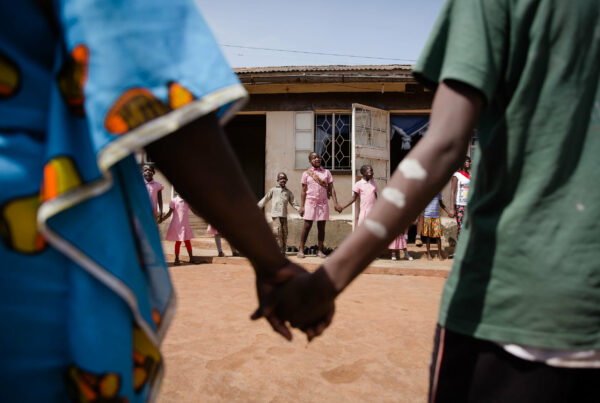I have recently returned from an 11-day trip to the Holy Land. It was a truly challenging and edifying journey together. (It was a collaboration among Reformed Church in America’s Women’s Transformation and Leadership, RCA missionaries Sally and Josh Vis, and PhD candidate and RCA minister Dustyn Keepers.) We climbed Mt. Arbel and walked the Via Dolorosa in Jerusalem. We visited archaeological sites in places such as Qumran and Magdala. We waded into the waters of the Jordan River, sailed the Sea of Galilee, and floated in the Dead Sea (okay, I put my feet in the Dead Sea, then sat down for a time of fellowship over iced coffee and fresh-squeezed pomegranate juice while others floated.) We opened our Bibles time and time again to read stories that talked about the areas we visited and the people who lived in these places many, many years ago. We opened our hearts and our minds as we listened to the stories shared with us by Palestinians, Israelis, and foreigners—Jews, Christians and Muslims—who live and work in Israel and Palestine.
The significance of stories
Stories became a central theme of this trip. As we read about Deborah, Jael, Jezebel, Mary Magdalene, the Samaritan woman, Anna, Huldah, Mary, Elizabeth, Naomi, Ruth, and so many others, we had the opportunity to sit in the places where they lived and wonder about their lives, about what parts of their stories are told in the Bible and what parts are not.
We had the privilege of listening to numerous speakers as they discussed their lives in Israel and Palestine now—the histories of the Israeli and the Palestinian peoples, the histories of their persecution and oppression, and the intense hardships of the current occupation and ongoing conflict. But, in the midst of so much pain and loss, people also shared their hopes, their desire for peace and reconciliation, and their faith.
We also had the opportunity to listen to the stories of one another, as pilgrims together on this journey. Just like stories we read in the Bible, each person’s story was told in a different way, from a different perspective, revealing some details along the way but never quite filling in all of the gaps and telling “the full story.” However, during our time together, we heard enough of each person’s story to know them a little more fully—and through the storytelling process—to care about one another in a new and meaningful way.
The place where the shepherds heard the story

On our last day, we visited the Shepherds’ Field in Beit Sahur, a village that overlooks Bethlehem from the Southeast and is proposed to be the site where the angel appears to the shepherds in Luke 2:8-20 to announce Jesus’ birth. After spending some time reading and pondering this biblical story, our group turned towards Bethlehem and sang, “Go Tell it on the Mountain.” It was a moving moment, as our group triumphantly announced the birth of our Lord and Savior on—or at least near—the same land where the angels and the shepherds stood more than 2,000 years ago, singing together a well-loved Christmas song. After all, it is the greatest story ever told, right?
Yet, in that moment, I also had a wave of sadness wash over me, knowing what was going to happen to Mary, Joseph, and Jesus in a few short years. Knowing that they would flee for their lives to Egypt due to religious and political persecution, and that Jesus would live many formative years of his childhood in forced displacement.
I often wonder why we, as Christians, tend to skip over (or not pay a lot of attention to) this part of Jesus’s story. I wonder how Mary and Joseph felt when they heard the news of Herod’s plan to find and kill young Jesus, and as they were instructed to return to the land of Israel after Herod’s death, as told in Matthew 2? I wonder how dangerous and difficult the journey to and from Egypt was for Mary, Joseph, and Jesus? I wonder how Jesus felt leaving Egypt and stepping foot into the land of Israel many years later after his birth? How did his childhood as a refugee or asylum seeker shape the man he later became, and how did it shape the ministry he began here on earth?
The sacred practice of storytelling
During our time at Shepherds’ Field, I was reminded of the power of storytelling, especially as it relates to my work as a missionary and Refugee Ministries coordinator for RCA Global Mission. It is a sacred moment when someone shares with you their story of forced displacement and seeking refuge. It is humbling to be entrusted to tell someone’s story when they cannot tell the story themselves. It is a blessing to create a safe space for those who have experienced displacement.
In my work, I have experienced all three, but I must admit, the first and the third scenarios are my favorite, in part because these scenarios have the most impact to connect us—the receivers of the story—to the story and the person or people the story is about. I truly believe it is a sacred practice to create a safe space where someone can tell their story, in the way they wish to tell it, choosing for themselves the details they wish to share and those they wish to exclude. In this sacred space, both the storyteller and the one receiving the story can be blessed in numerous ways; both the storyteller and the one receiving the story can use what they experienced in the storytelling, not only to learn facts and figures, but to grow in empathy and in a desire to create a world that takes seriously the biblical mandates to care for the foreigner, the sojourner, the widow, the orphan, the prisoner, the slave, and the other.
This Is My Story Project: Migrant and Refugee Stories
In a few weeks, we will be launching a new storytelling project focused on the stories of those who have a personal experience of migration and/or forced displacement and those who have been blessed by someone with a migration history. If you have a story to share about this topic or would like to hear migrant and refugee stories, stay connected to Faithward and RCA Global Mission on Facebook and Instagram for more information.
If you’d like to do more to help refugees but are unsure how, here are some ways you can help refugees and displaced people.

JJ TenClay
JJ TenClay spent four years in Italy as a missionary for the Reformed Church in America working with migrants, refugees, and asylum seekers. She is now the Refugee Ministries Coordinator for RCA Global Mission. She is thankful to have seen the image of God reflected so diversely in the faces of those to whom—and with whom—she served abroad, and is excited to continue serving the RCA as it continues to develop a faithful response to the ongoing global refugee crisis. You can connect with JJ at jjtenclay@rca.org.



